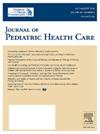儿科执业护士的体重管理行为咨询:定量横断面研究
IF 2.5
4区 医学
Q2 HEALTH POLICY & SERVICES
引用次数: 0
摘要
简介:本研究评估了儿科执业护士(PNPs)在管理超重和肥胖方面提供的咨询服务:这项研究评估了儿科执业护士(PNPs)在管理超重和肥胖方面提供的咨询服务:方法:采用横断面设计,1,058 名儿科执业护士完成了一项一次性调查,内容涉及健康体重、体育锻炼、蛋白质、水果和蔬菜摄入量等方面的咨询:研究结果:研究结果表明,PNP 正在对儿科患者的体重管理进行行为咨询。对健康体重、水果和蔬菜摄入量以及体育锻炼的咨询比对蛋白质摄入量和增强肌肉的咨询更为频繁。此外,当 PNP 对健康体重进行咨询时,他们也更有可能对体育活动(OR = 25.99 [95% CI: 19.25, 35.11])、水果和蔬菜摄入量(OR = 22.35 [95% CI: 16.71, 29.88])、蛋白质摄入量(OR = 9.82 [95% CI: 7.60, 12.69])和肌肉力量(OR = 6.41 [95% CI: 4.98, 8.24])进行咨询:讨论:PNP 是健康体重的咨询和必要的行为工具,但加强对肌肉强化的重视可能对超重和肥胖青少年有益。本文章由计算机程序翻译,如有差异,请以英文原文为准。
Behavioral Counseling for Weight Management by Pediatric Nurse Practitioners: A Quantitative Cross-Sectional Study
Introduction
This study assessed counseling by pediatric nurse practitioners (PNPs) for management of overweight and obesity.
Method
Using a cross-sectional design, 1,058 PNPs completed a one-time survey regarding counseling for healthy body weight, physical activity, and consumption of protein, fruits and vegetables.
Results
Study findings suggest PNPs are using behavioral counseling for weight management in pediatric patients. Counseling was more frequent for healthy body weight, fruit and vegetable intake, and physical activity than for protein consumption and muscle strengthening. Furthermore, when PNPs counseled for healthy body weight they were also more likely to counsel for physical activity (OR = 25.99 [95% CI: 19.25, 35.11]), fruit and vegetable intake (OR = 22.35 [95% CI: 16.71, 29.88]), protein intake (OR = 9.82 [95% CI: 7.60, 12.69]), and muscle strengthening (OR = 6.41 [95% CI: 4.98, 8.24]).
Discussion
PNPs are counseling for healthy body weight and necessary behavioral tools, but increased emphasis on muscle strengthening may benefit overweight and obese youth.
求助全文
通过发布文献求助,成功后即可免费获取论文全文。
去求助
来源期刊

Journal of Pediatric Health Care
NURSING-PEDIATRICS
CiteScore
3.40
自引率
10.70%
发文量
140
审稿时长
24 days
期刊介绍:
The Journal of Pediatric Health Care, the official journal of the National Association of Pediatric Nurse Practitioners, provides scholarly clinical information and research regarding primary, acute and specialty health care for children of newborn age through young adulthood within a family-centered context. The Journal disseminates multidisciplinary perspectives on evidence-based practice and emerging policy, advocacy and educational issues that are of importance to all healthcare professionals caring for children and their families.
 求助内容:
求助内容: 应助结果提醒方式:
应助结果提醒方式:


